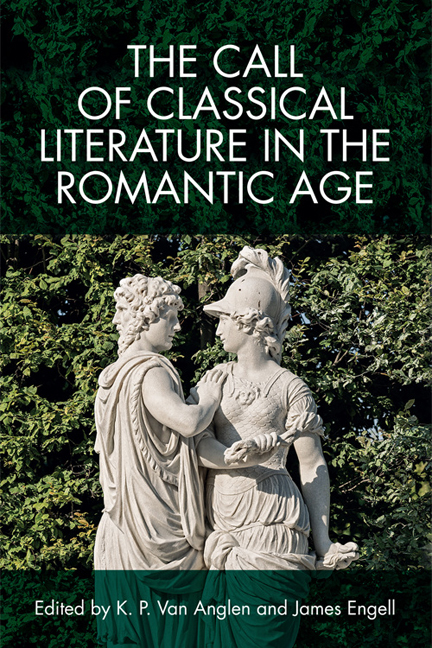13 - The Other Classic: Hebrew Shapes British and American Literature and Culture
Published online by Cambridge University Press: 06 May 2021
Summary
In relation to the literary culture of the English language, no account of “the classics” can be complete without attention to Hebrew. From the mid-sixteenth through the mid-nineteenth century, learned individuals regarded Hebrew as one of the classical languages. Its literature shaped not only religious and biblical study but also lyric poetry, concepts of the sublime, the prophetic mode, innovations in poetic form, critical examination of allegory and symbol, and fundamental debates concerning government and political organization. During this time the study of Hebrew was often allied with the study of Greek and Latin.
Throughout the eighteenth and earlier nineteenth century, Greek and Latin enrich English poetry, drama, political and historical discourse, essays, rhetoric, philosophy, natural history, and the novel. Yet, it is Hebrew Scripture and literature that most strongly refresh older poetic forms and incite new ones. The most important developments in English and American poetry since 1700 emerge from a critical, fresh approach to ancient Hebrew poetry and its forms, from attention to its miraculous expression of everyday life yoked by imagery and parallelism to eternity and transcendent power. The study of Hebrew poetry prompts a reformed sense of poetry not as metrical composition but as impassioned expression, often in direct speech, frequently in parallel phrasing. Attention to Hebrew Scripture invigorates criticism and aesthetics. It reignites a sense of poetic prophecy. In some minds it also raises the old question: are Jerusalem and Athens, the Hebraic and Hellenic, compatible? After the Romantic era, the influence of Hebrew wanes into the twentieth century. Secularization clearly plays a hand, though so does a complex critical tendency (at times tinged with anti-Semitism) that minimizes the role of Hebrew in reshaping English verse and influencing English and American culture.
The most important figure in the earlier, upsurging transformation is Robert Lowth, the most influential text his Lectures on the Sacred Poetry of the Hebrews, delivered between 1741 and 1750 at Oxford. While an astute contribution to biblical studies, Lowth's criticism revolutionizes poetry and literary aesthetics. Lowth knew Hebrew well. He delivers his lectures, as then required of the Professor of Poetry, in Latin. Published in that language in 1753, they appear in English in serialized extracts in 1753 and 1766–67, and in a full English rendering by George Gregory in 1787, the year that Lowth, then Bishop of London, dies.
- Type
- Chapter
- Information
- The Call of Classical Literature in the Romantic Age , pp. 341 - 403Publisher: Edinburgh University PressPrint publication year: 2017



